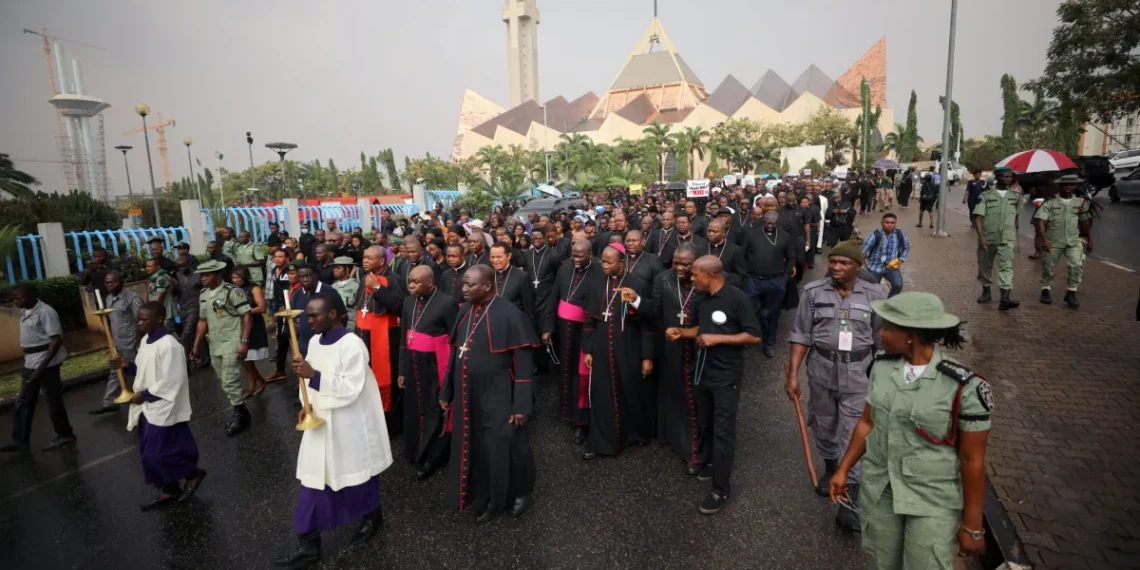The House of Representatives on Wednesday rejected assertions that the security challenges confronting the country amount to religious persecution or state-sponsored violence against religious groups.
Instead, the House advocated for a collaborative investigation, reaffirming the constitutional right to freedom of religion and belief in the country.
In a motion of urgent public importance introduced by Deputy Speaker Benjamin Kalu, the House condemned all forms of violence and persecution based on religion or belief, expressing solidarity with all victims, irrespective of their faith.
The House instructed its Committees on Foreign Affairs, National Security and Intelligence, Interior, Information, National Orientation and Values, Police Affairs, Civil Society, and Human Rights to coordinate with the Federal Ministry of Foreign Affairs and the Nigerian Embassy in Washington, D.C., within 21 days.
They are to formally address the sponsors of the U.S. bill and the relevant congressional committees.
These committees are also tasked with engaging the U.S. Mission in Nigeria and interested American lawmakers to propose a joint Nigeria-U.S. fact-finding and dialogue mechanism on freedom of religion or belief, which would include faith leaders and independent experts.
Read also:
- FG rejects claims of religious genocide against Christians
- Senate to debate motion on alleged genocide against Christians
- The Truth About Systematic Killings of Christians in Nigeria
Additionally, they are to invite the U.S. Commission on International Religious Freedom (USCIRF) to a House hearing to assess the sources, methodology, and implications of its reports concerning Nigeria.
The House further mandated that the resolution be sent to the Presidency, the Federal Ministry of Foreign Affairs, security agencies, the leadership of the U.S. Congress (Senate Foreign Relations and House Foreign Affairs Committees), the U.S. Department of State, USCIRF, the African Union, and ECOWAS Commissions.
While presenting the motion, Kalu referenced a bill introduced in the U.S. Senate on September 9, 2025, titled: “The Nigeria Religious Freedom Accountability Act of 2025 (S.2747),” which seeks to classify Nigeria as a “country of particular concern” and impose sanctions on Nigerian officials under Executive Order 13818 (Global Magnitsky Act) and related authorities.
He noted that USCIRF has recommended Nigeria for CPC designation in its recent annual reports, citing ongoing violations and the government’s failure to protect against abuses by non-state actors.
Kalu emphasized that the constitution guarantees freedom of thought, conscience, and religion, prohibits the establishment of a state religion, and that successive administrations, security agencies, faith leaders, and civil society have taken steps to protect all worshippers and hold offenders accountable, as reflected in the U.S. Department of State’s 2023 country chapter and previous reports.
He argued that Nigeria’s insecurity is complex and multifaceted, driven by insurgency, criminal banditry, and other factors.






